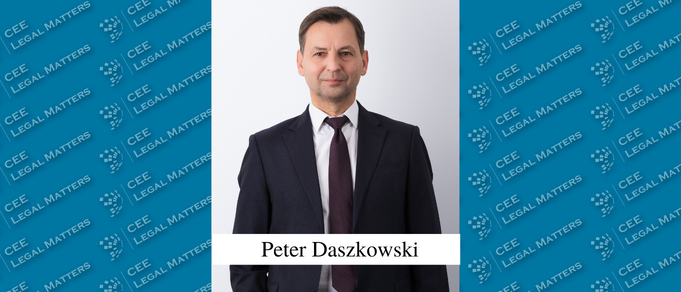Controversial consumer loans, unfair competition-related disputes, and changes to long-term agreements due to force- majeure events are all increasingly frequent in Poland these days, according to Wolf Theiss Partner Peter Daszkowski.
"There is a lot going on in Poland," Daszkowski starts. "The crisis in Ukraine is always an issue at the center of our attention, especially since there are around 200,000 refugees from Ukraine working in Poland, benefiting from very friendly legislation that allows them to work without a work permit."
Additionally, Daszkowski says that COVID-19 is not over yet: "We still have discussions about whether we should go back to working from the office or work remotely, and how much office space is needed. Both lawyers and clients are hesitating as, still, a large number of employees are working from home. We are still waiting for the legal regulations, especially in terms of employment." According to him, there is a draft law already "in the pipeline of the legislator but, for some reason, its finalization is taking a long time."
"With everything that has been going on, we have quite high inflation – recently it reached its peak of 19%," Daszkowski continues. "For corporations, it complicates economic calculations and the planning of how to proceed with long-term obligations. Some of them decided to renegotiate their existing contracts or even go through the courts."
According to Daszkowski, there is an update in terms of energy legislation. "On November 2, 2022, a new law was adopted that introduces and defines the maximum price for energy consumers, administration, and companies," he says. "Not every company can benefit from this new regulation, as it will apply mostly to smaller enterprises. Still, the law is a bit vague in terms of how to define a 'smaller' company."
Daszkowski highlights another major recent development in Poland, related to consumer loans. "Over a decade ago, Polish banks granted loans to consumers in Swiss currency, which led to numerous court proceedings," he notes. "Eventually, it seems that courts are rather deciding in favor of the consumers. Now we're facing the second type of controversial consumer loans, as credits with interest rates calculated on the basis of the Warsaw Interbank Offered Rate have been introduced. Consequently, the interest rate can now reach even 8 to 10%. We have already seen the first decisions of the courts here."
As for client work, Daszkowski says there are an increasing number of disputes related to unfair competition, as well as changing long-term agreements due to force- majeure events. "Dealing with sanctions is also an issue," he reports.
On the other hand, Daszkowski says "looking at the positive signals of the international stock exchanges and some signs that inflation will decrease, we hope this will have a positive impact on the Polish economy. Overall, everybody seems to look forward to the period when we can resume our 'normal' life."






















